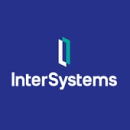At InterSystems, cultivating a culture of continuous learning on the engineering team starts with a question: “Why?”
“If we don’t know whether option ‘A’ or ‘B’ is better, we encourage experimentation to understand how the system actually behaves,” Mark Hanson, director of development at the data company, said.
Staying curious has a proven positive impact on business outcomes and people’s cognitive ability. Hanson and his team are not alone in seeing its benefits.
Built In recently spoke with Hanson about how staying curious has made all the difference for engineers on his team.
InterSystems’ software products provide advanced data management, integration and analytics technologies for applications in healthcare, business and government.
How does your team cultivate a culture of learning, whether that’s through hackathons, lunch and learns, access to online courses or other resources?
The main way we promote a culture of learning is by always being inquisitive, asking “why does this happen?” This helps engineers to understand system behavior and the impact of their changes. This shows up in several ways: all changes require technical documentation that explains high-level behavior; code reviews include questions and justifications; lunch-and-learns allow people to share knowledge and spark conversations; and team members often share research papers on relevant topics. If we don’t know whether option 'A' or 'B' is better, we encourage experimentation to understand how the system actually behaves.
InterSystems is involved in hosting monthly developer meetings where we share company updates and product presentations, participate in hackathons around the globe and work together to design and build innovative technology projects. Students will focus on four main areas for innovation: healthcare, sustainability, education, and interactive media. We update content that dives deeper into our products, services and solutions. InterSystems is well-known in the developer community, where we connect with thousands of developers to collaborate, share and innovate.
How does this culture positively impact the work your team produces?
The most important impact is that it makes the work more enjoyable. It empowers engineers to develop the best possible solutions and to feel they are making a meaningful impact.
For example, in building a leading vector search engine, we needed to implement an approximate nearest neighbor index. Because we’re used to reading, understanding and applying research papers, we were able to identify a state-of-the-art algorithm (hierarchical navigable small world) and quickly turn the paper into efficient production code.
Another example is the SQL engine’s need for complex modeling of data pipelines. These decisions affect performance based on available hardware. Our culture of learning encourages people to model these pipelines in statistically justifiable ways, which leads to better models — and therefore better performance.
“Our culture of learning encourages people to model these pipelines in statistically justifiable ways, which leads to better models — and therefore better performance.”
What advice would you give to other engineers or engineering leaders interested in creating a culture of learning on their own team?
Make space for research and experimentation, even if it sometimes leads to no immediately practical results. Engineers need to feel comfortable making informed guesses about how the system behaves — and then testing those guesses by building runnable code and measuring outcomes. If the results aligned with expectations, the guess was likely correct. More interesting, if they don’t align with expectations the engineer learned something new about the system. Learning by experimentation is far more powerful than being told what to do, and good engineering often comes down to being able to model system behavior to understand where trade-offs should be made.
Learning is fun — lean into how enjoyable it is to explore a problem space. Recognize the value of mentors in this process, and encourage people to share their discoveries and ideas at events like lunch-and-learns. Challenge your team to develop deeper solutions and back up their ideas with data. And always ask, “why?”







